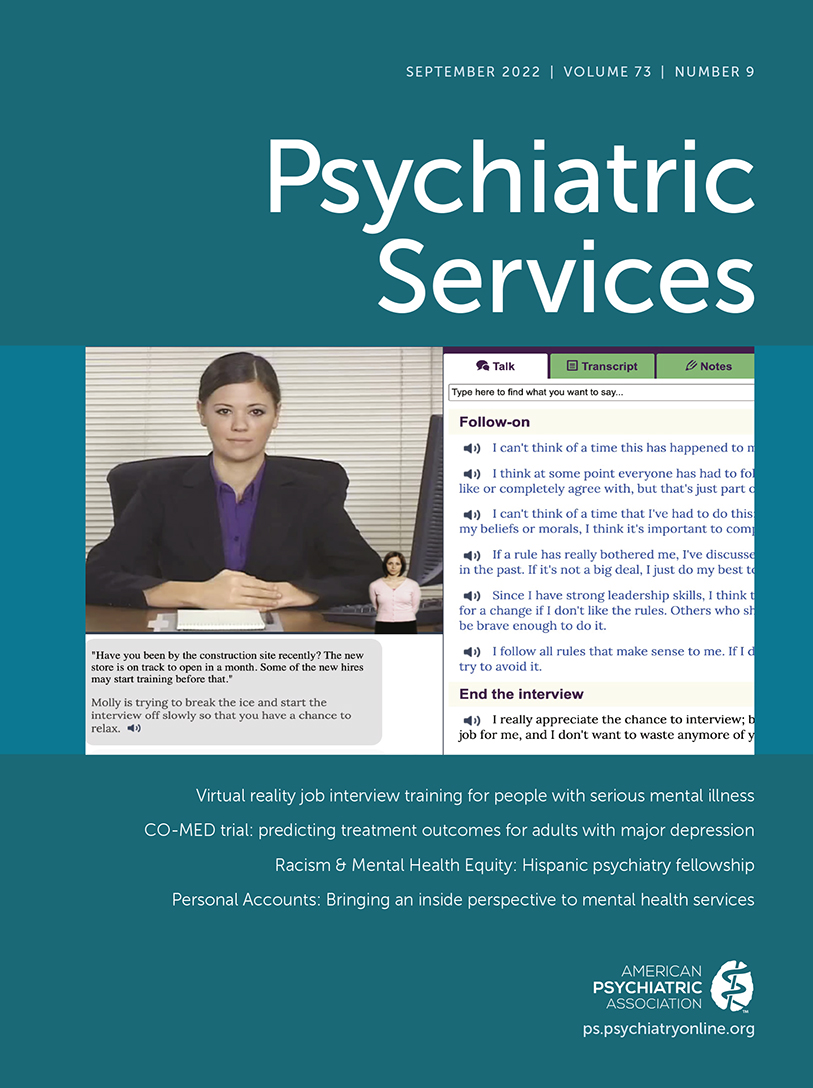Dismantling Racial Inequities in Early Psychosis Family Psychoeducation
Abstract
Families and caregivers play a critical role in the recovery of their loved ones with schizophrenia. Early intervention services, including family psychoeducation, can improve clinical outcomes and reduce stress for caregivers. Despite the benefits of family psychoeducation, Black caregivers engage in treatment at lower rates than do White caregivers. To eliminate disparities in early intervention care, mental health clinicians must understand the system of racism that shapes the Black caregiver experience. This column examines racial disparities in family psychoeducation engagement by contextualizing the Black caregiver experience and encourages culturally appropriate early intervention services to improve psychosis care.



